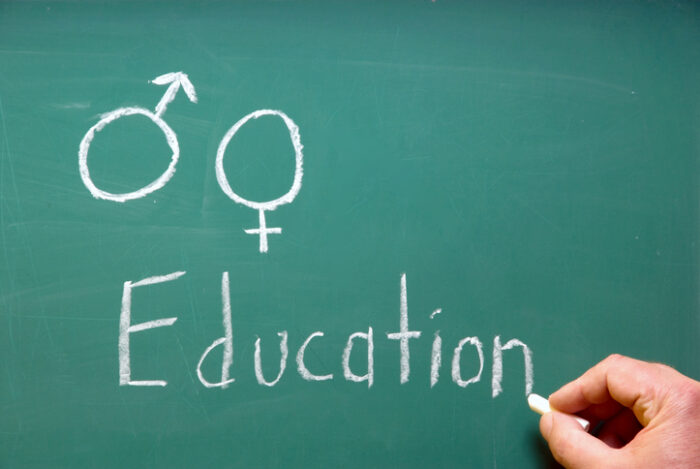
Almost two in three (61pc) student-teachers said they were not receiving enough input on RSE as part of their own education..
This is despite the fact that nearly all of the students (94pc) intended to teach RSE when they started working.
The same study, carried out at Dublin City University (DCU), also found no explicit reference to RSE in a sample of documents used in teacher training programmes.
Researchers from the School of Human Development in DCU Institute of Education explored the provision of sexuality education to student teachers.
While they say teachers play an integral role in RSE, lecturers reported minimal time allocation for RSE on teacher training programmes and it is typically a one-off input.
The report calls for a strengthening of the preparation for RSE in teacher training as well as continuing professional development to ensure all children and young people receive school-based comprehensive, inclusive, rights-based education in the subject.
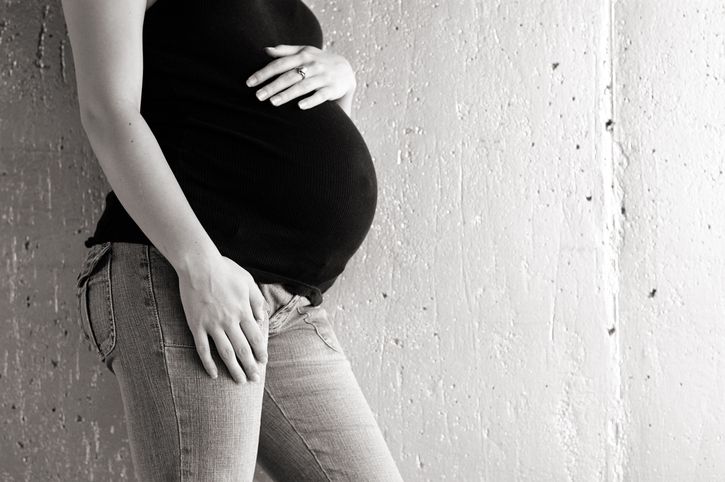
Arizona lawmakers passed a bill banning most abortions after 15 weeks of pregnancy, becoming the second state legislature to push through this restriction ahead of a pivotal Supreme Court decision that could alter the abortion rights landscape nationwide.
The Arizona House of Representatives passed the bill in a 31-26 vote Thursday. It now heads to the desk of Arizona Gov. Doug Ducey, a Republican who has signed restrictions on abortion since becoming governor in 2015.
The legislative efforts in Arizona follow similar moves in Florida, where Republican lawmakers earlier this month approved a ban on most abortions after 15 weeks of pregnancy.
These bills are similar to the Mississippi law at the centre of a Supreme Court case that challenges the high court’s 1973 Roe v. Wade decision, which established a constitutional right to abortion. Similar bills in West Virginia and Kentucky passed one chamber in those state legislatures.
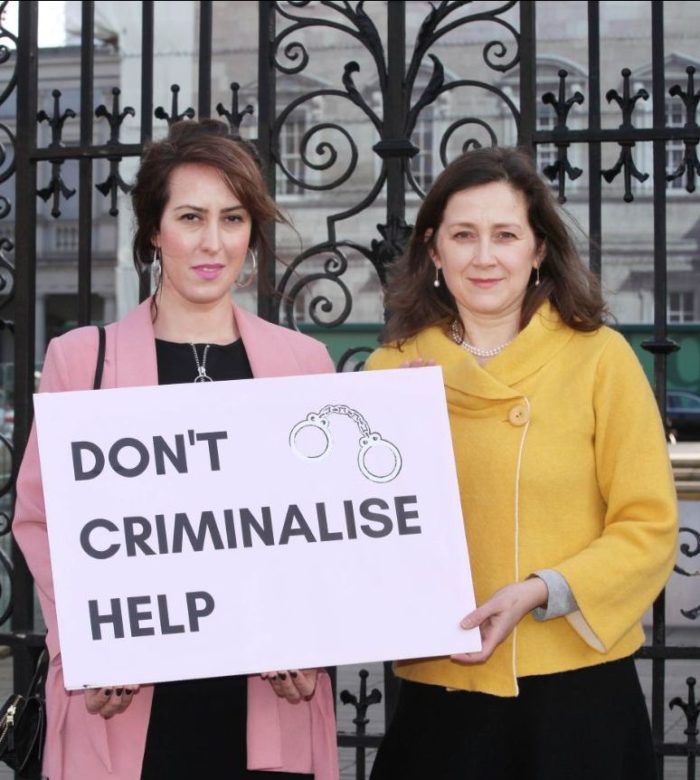
A draconian new law making a pro-life presence outside abortion facilities illegal was passed in the Northern Assembly yesterday evening by 55 votes to 29.
The Abortion Services (Safe Access Zones) law was strongly backed by Sinn Féin and the SDLP. The DUP and TUV voted against the new law. The main sponsor of the legislation, Green Party MLA, Clare Bailey, previously volunteered for pro-abortion group Marie Stopes.
MLAs voted in favour of the bill despite the Assembly receiving 6,412 submissions from members of the public opposing it, and a mere 14 submissions in favour.
Before the law passed, Alina Dulgheriu from the pro-life group ‘Be Here For Me’ appealed to MLAs in Stormont to pull back from endorsing the radical measure.
Recalling how she herself almost went though with an abortion but for a chance encounter with a pro-life person outside the clinic, Alina said: “I saw on the abortion provider’s [Marie Stopes] website that the clinic offered pre-abortion counselling. I called and asked for some help. ‘We only offer abortion’, came the glib reply. The day that I turned up to my abortion appointment, a volunteer outside the clinic gave me a leaflet. It offered the help that I had been searching for. I couldn’t be prouder of the life my daughter and I have charted out together. The reality is that so many women like me have had to make an abortion appointment not through choice, but by pressure. A BBC poll last week showed that more than one in ten women have felt “coerced” into having an abortion. This could be at the hands of an unsupportive partner like mine; or parents, or friends telling women that there’s no way that they could ever handle motherhood”.
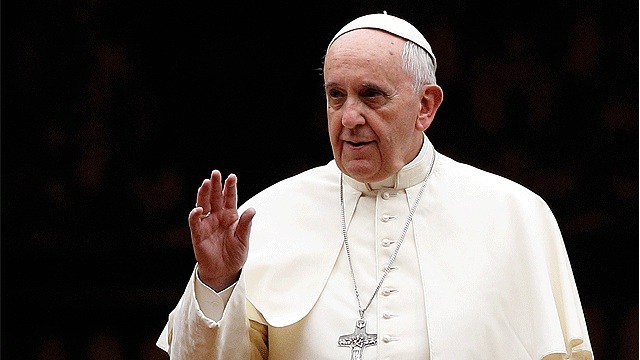
Pope Francis presided today over special prayers for Russia and Ukraine, echoing a request first made during the apparitions of Our Lady in Fatima in 1917.
Back then, the three visionaries reported that Our Lady specifically requested that Russia be consecrated to her Immaculate Heart. They recounted that she said: “If my requests are heeded, Russia will be converted, and there will be peace. If not, she will spread her errors throughout the world, causing wars and persecutions of the Church. The good will be martyred, the Holy Father will have much to suffer, various nations will be annihilated”.
The Pontiff was joined by bishops, priests and ordinary faithful around the world in the consecration prayer Friday afternoon. And to hammer home its universal nature, the Vatican translated the text of the prayer into three dozen languages. Retired Pope Benedict XVI also participated and an envoy of Francis celebrated a simultaneous Mass at the Fatima shrine itself.
The Mass is Francis’s latest effort to rally prayers for an end to the war while keeping open options for dialogue with the Russian Orthodox Church and its influential leader, Patriarch Kirill. Francis has yet to publicly condemn Russia by name for its invasion, though his denunciations have grown increasingly strident and outraged in recent weeks.

There is a “genuine risk” that a referendum on removing a reference to the work of mothers in the home from the Constitution could be lost if it is not carefully worded, Minister for Children and Equality Roderic O’Gorman has said.
At the Oireachtas Committee on Gender Equality yesterday, Mr O’Gorman came under pressure from members to publish his department’s proposed wording for such a referendum question, with progress on the matter described as “glacial”.
The Minister said he was “unclear” as to how his department and the committee might engage on wording. He said at this stage any referendum “is potential” and that no date had been set, though he wanted one to be held next year.
“There is fairly broad acceptance and agreement we need to change the Constitution but what we are going to do is not agreed,” he said.
The newly-established committee is considering how to implement the 45 recommendations delivered by the Citizens’ Assembly on gender equality last April, the centre piece of which was that Article 41.2 of the Constitution should be deleted and replaced.

Members of the Northern Ireland Assembly have delayed a decision which, among other things, would ban pro-life help from being offered on public streets near abortion facilities.
The vote was delayed after it failed to receive cross community support for an Assembly debate on the matter.
The “Abortion Service (Safe Access Zones) Bill” would make it a criminal offence to “influenc[e]… a… person [seeking an abortion], whether directly or indirectly” within “safe access zones”. This legislation would effectively criminalise any form of counselling, offer of material help or even prayer nearby an abortion facility.
Alina Dulgheriu, a mother who benefitted from the offer of pro-life support outside an abortion clinic, gave a statement on the behalf of the group “Be Here for Me”, urging politicians not to criminalise help:
“The support I received from peaceful volunteers outside the clinic where my abortion was scheduled changed my life. My daughter’s life was saved because of them. Please don’t criminalise offering help to women when they need it most.”

Sisters Lila Ammouri and Susan Frazier had been healthy and happy prior to their death, their brother says. Cal Ammouri, 60, told The Independent he last spoke to his sisters a few weeks before they travelled to Switzerland on 3 February, and there was no indication they were about to end their lives. He said he had been kept in the dark by US Consular services about the cause of death.
Lila Ammouri, 54, a palliative care doctor, and Ms Frazier, 49, a registered nurse, flew from Arizona to Switzerland via Chicago on 3 February without telling friends or family. When they didn’t didn’t show up for work at Aetna Health Insurance on 15 February, colleagues raised the alarm, fearing they may have been kidnapped or held hostage.
Their death was confirmed by the US Consulate in Switzerland on 18 February. Basel-Landschaft Public Prosecutor’s Office spokesman Michael Lutz told The Independent the sisters had died via assisted suicide.

Ukrainian President Volodymyr Zelenskyy spoke on the phone with Pope Francis on Tuesday.
“[I] told His Holiness about the difficult humanitarian situation and the blocking of rescue corridors by Russian troops,” the president tweeted. “The mediating role of the Holy See in ending human suffering would be appreciated. Thanked for the prayers for Ukraine and peace.”
Minutes later, as he addressed the Italian senate, he reportedly quoted Pope Francis’s “very important words,” claiming the Catholic leader said: “I understand that you want peace, I understand that you want to defend yourselves, I understand that the military defend civilians, and that civilians defend their own homeland.”
Zelenskyy said his response to the pontiff’s words were: “Our people have become the army, when they have seen the evil that the enemy brings with him, how much devastation he leaves behind him, and how much blood he wants to see spilled.“
According to Ukraine’s ambassador to the Holy See, Zelenskyy reiterated his invitation for Francis to visit Ukraine, saying that he is “the most awaited guest in Ukraine.” Last week, a letter by the mayor of Kyiv inviting the pontiff to the city was leaked to the media.
Speaking in Rome on Thursday, Pope Francis said that what is happening in Ukraine is “unbearable” and this “shameful war” evidences a culture of “power and oppression.”
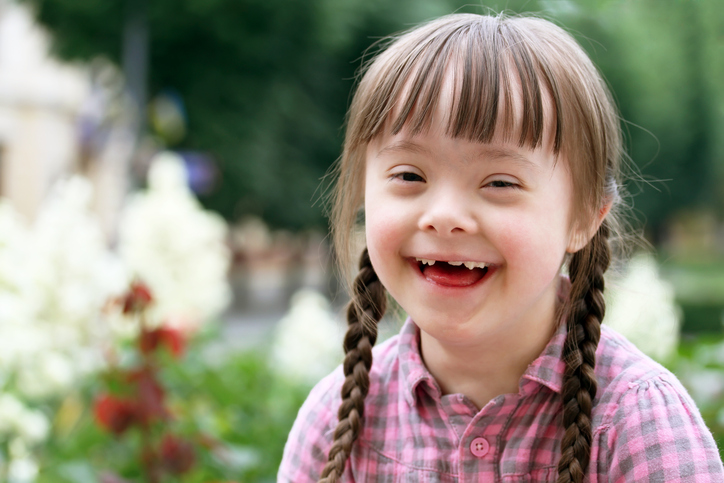
A group of former international, human rights, judges are asking the European Court of Human Rights (ECHR), to recognise that eugenic abortion of children with Down Syndrome can and should be prohibited out of respect for the rights of disabled people.
The judges of the European Court of Human Rights, of the Inter-American Court of Human Rights, and UN experts published an article in Valeurs Actuelles on World Down Syndrome Day two days ago.
According to the Advocacy group, the European Centre for Law and Justice (ECLJ), this step is unprecedented in the history of the European Court.
“It is the first time that former judges have acted in this way before the Court and that the question of eugenic abortion has been raised in such a direct manner. It must be said that the issue of eugenics is at the heart of the abortion debate in the United States, the United Nations and now in Europe”.
In the United States, twelve states have banned medical personnel from performing abortions when they are requested in a discriminatory manner because of a diagnosis of Down Syndrome. Some states also prohibit abortion on the basis of the child’s sex or “race”.
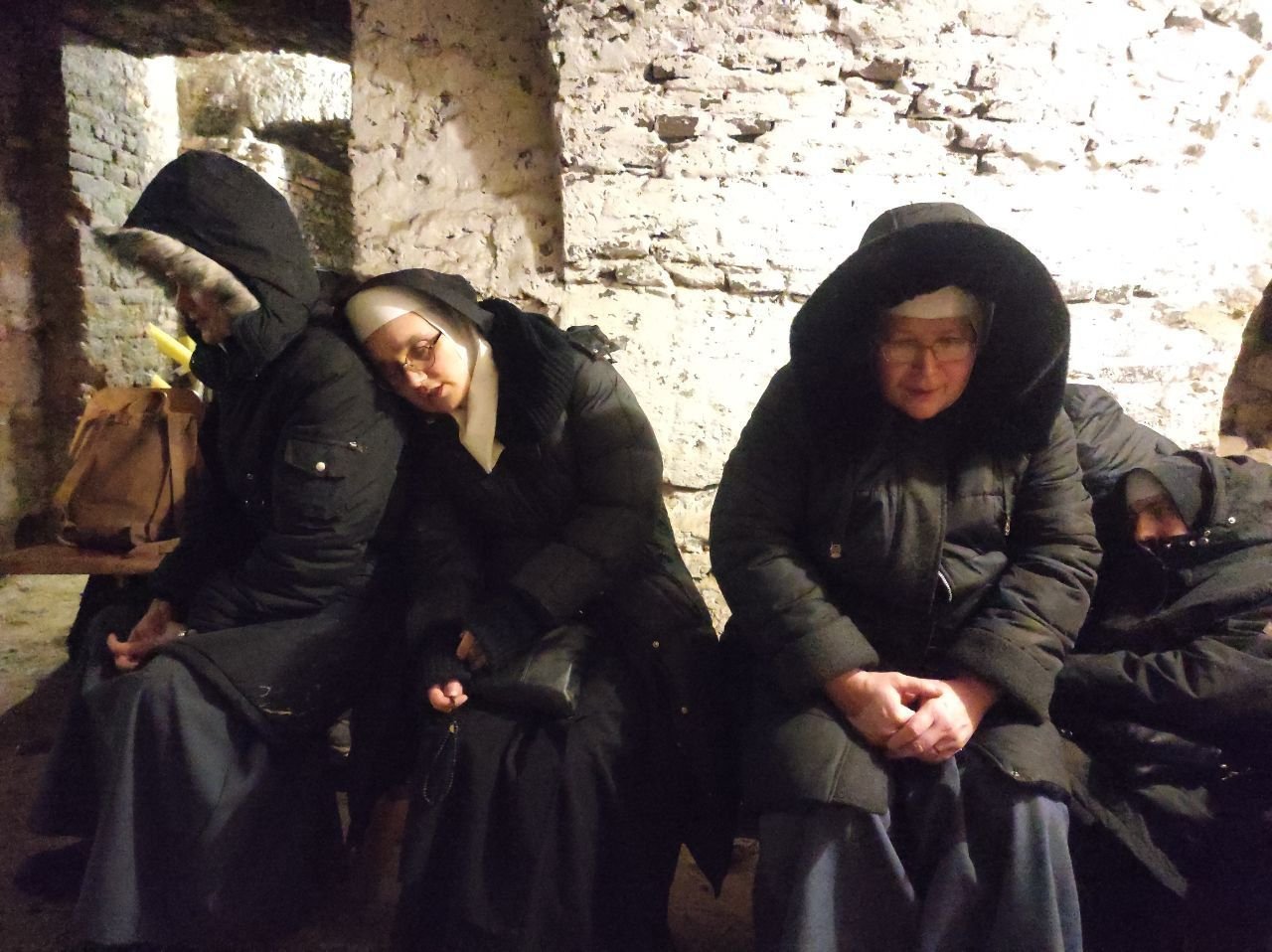
With millions trying to escape Ukraine, some insist on staying behind to help those who cannot flee. Among them are the diocesan workers, volunteers, priests and religious of the Kyiv-Zhytomyr diocese.
That’s according to an International Catholic charity, Aid to the Church in Need.
The charity has supported projects in the diocese for many years and has just given emergency aid of almost a quarter of a million euro due to the war.
Bishop Vitalii Kryvytsky, of the Diocese of Kyiv-Zhytomyr, is one of the many Church leaders in Ukraine who has refused to leave his flock. The Latin Catholic diocese encompasses the capital city of Kiev and the surrounding areas, which are coming under increasing pressure as Russian troops close in, in an attempt to surround the city.
Despite the immediate danger to the lives of all who stay, the clergy, led by the bishop, remain with their communities. Bishop Vitalii is adamant that at a time like this “we cannot be anywhere else”.